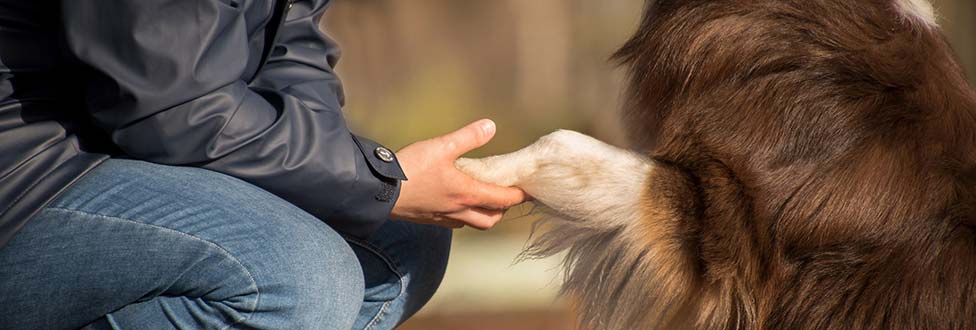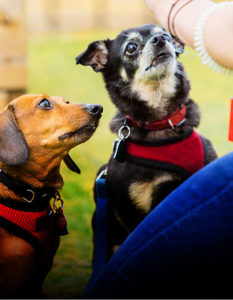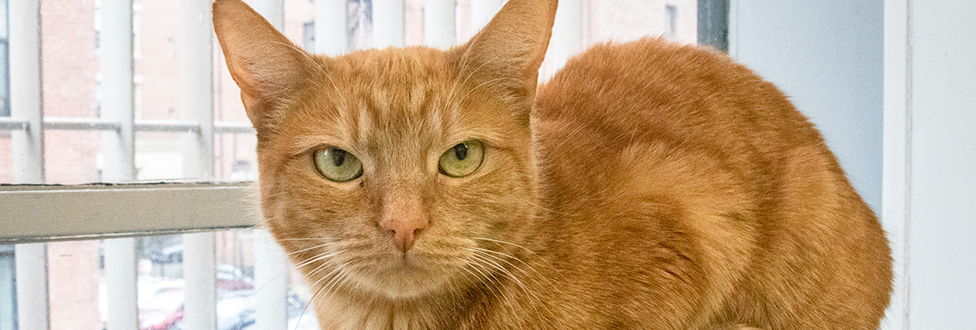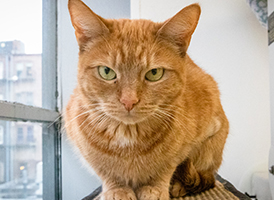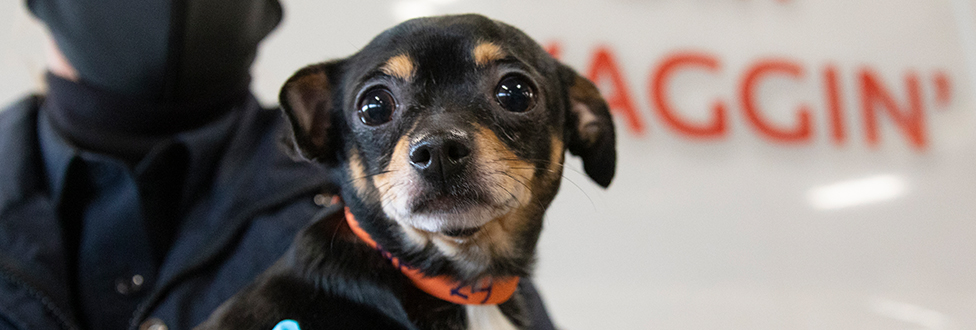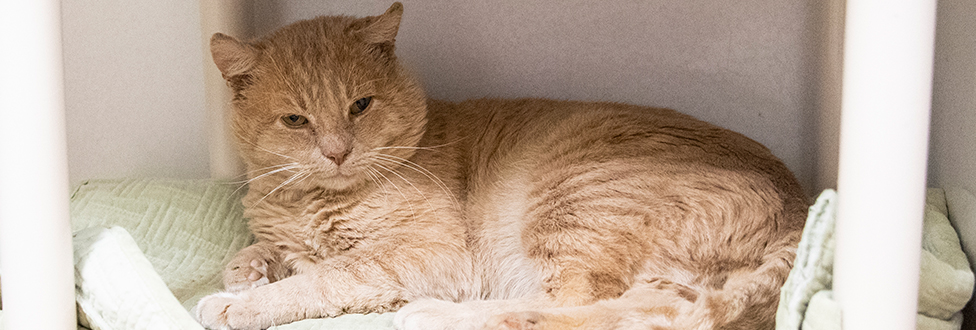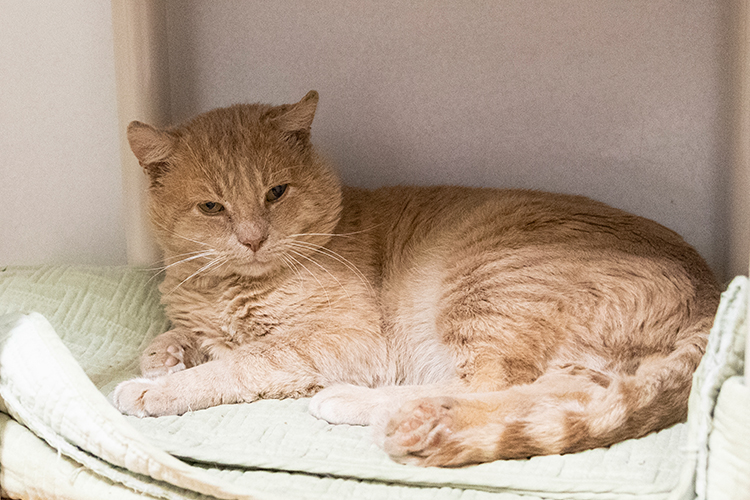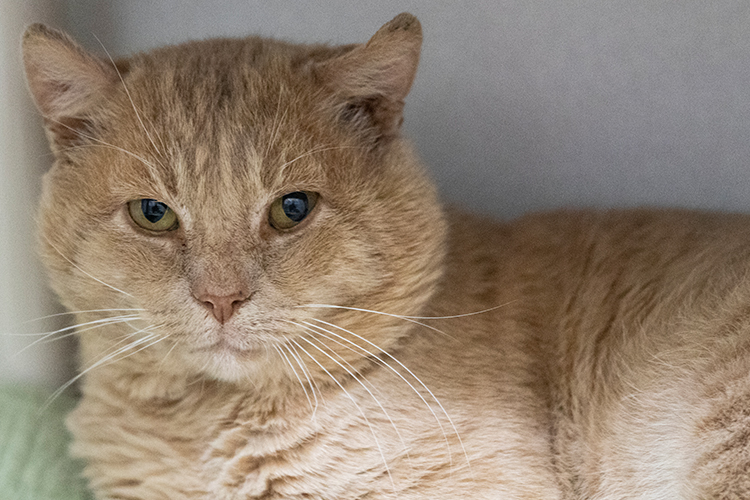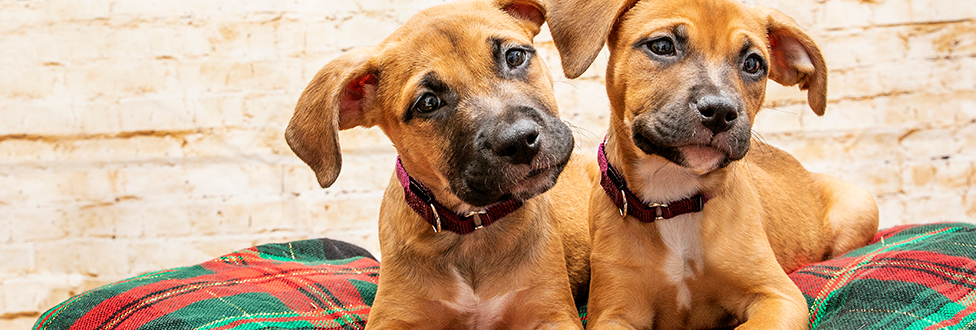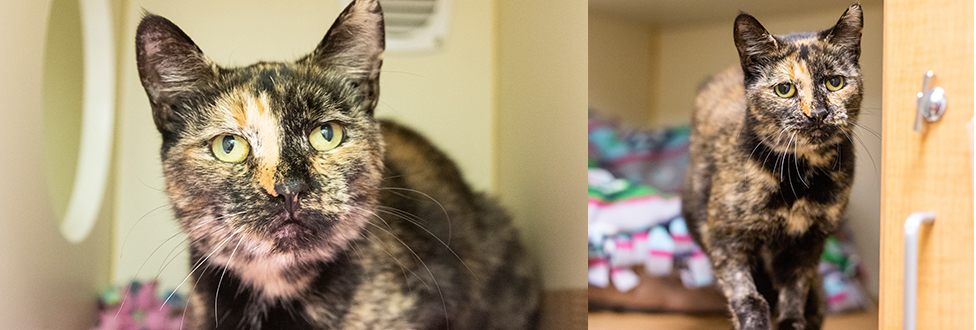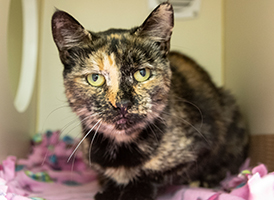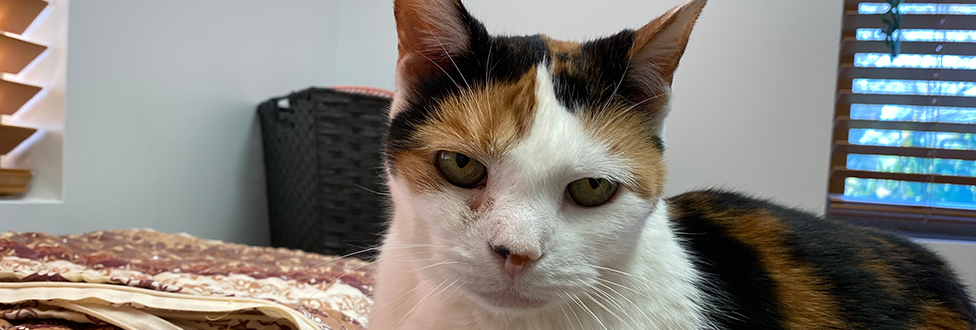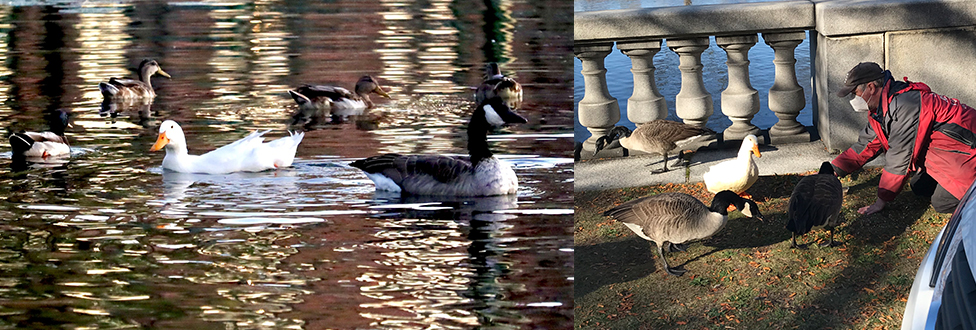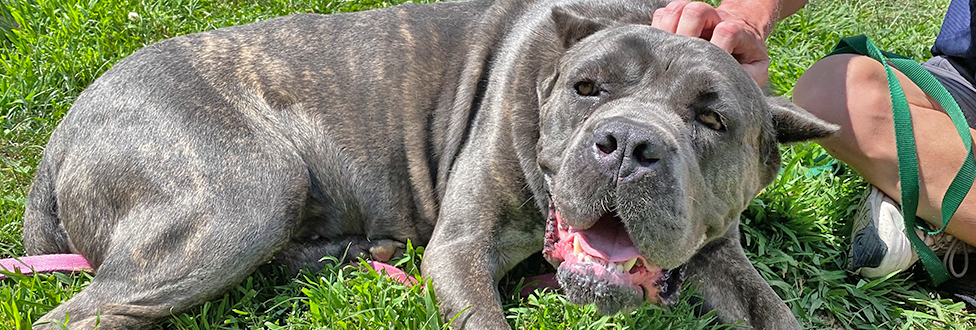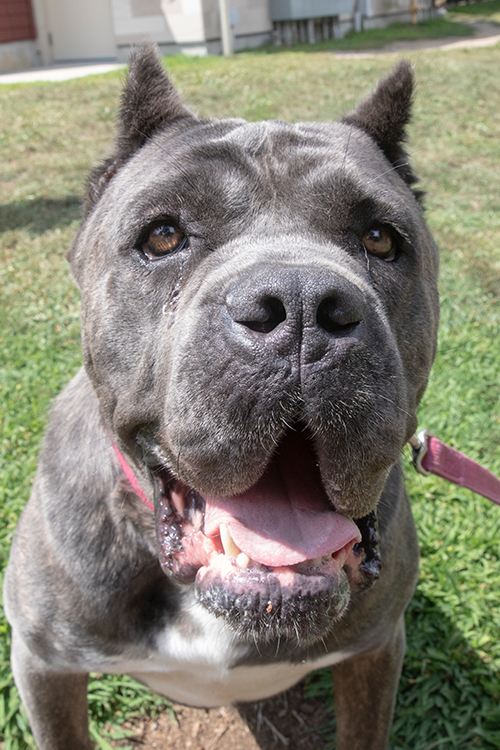How Dogs Learn — Part Two
We at the Animal Rescue League of Boston (ARL) believe in positive reinforcement, reward-based training methods when it comes to turning our pups into well-behaved pets.
This includes rewarding calm behavior, and providing the skills they need to thrive. In the second part of this series, we will introduce some techniques to help with crate training and curbing jumping behaviors.
To read part one in this series click here!
Crate Training
Crate training should be happening when you are home and when you leave.
This is something that is vital for a dog to learn to be away from you, even if you are still in the house.
This teaches them to be independent from you rather than being attached to you when you are home, and having to be detached when you leave. It is also a great skill when you have family, friends, or someone doing work in your home that aren’t too fond of dogs.
Your pup is used to being in their ‘bedroom’ whether people are home or not. It’s also a great skill to have if you travel with your dog. You could put their crate in the middle of Times Square and they would be happy in it because it’s their safe/happy place!
Jumping
This is a greeting that is self-reinforced for dogs. Typically it is human nature for us to react to dogs AFTER a dog jumps up on people — but it’s one of the most predictable behaviors that a dog will offer when greeting new people.
If a dog jumps up we say, ‘No!’ (talk), or push them down (touch) and look directly at them (eye contact) so the dog has actually been reinforced for that behavior.
Instead – we prepare for the dog to jump.
If you are alone – simply ignore the dog even if you have to put your hands up in front of your face so you don’t look at the dog and you can shield yourself from their jumping.
If you have another person in the home then it’s easy, and here’s an exercise to help curb this behavior.
Greeting Exercise
Typically, when people come through the door, the action of a person coming through the door is what triggers the dog’s excitement reaction.
It often does not matter who is entering. When people enter the home, the dog has the freedom to run to the person and start jumping on them.
This is the only behavior they have learned, and guess what? It works to get what they want because as previously stated, people are forced to respond by talking, touching, and making eye contact.
What we need to do as pet owners is give the dogs an alternative, more appropriate behavior that works to get what they want.
How the Name Game Works with the Greeting Exercise
Fill a treat pouch with high-value, delicious treats.
The higher the distraction, the higher-value the food needs to be.
Have the leash on your dog’s collar well before the person is entering. When the person is a few minutes away call your dog’s name and when she looks at you offer a delicious food treat.
Bring your dog over to a corner far enough away from the door way maybe even in another room. Have the leash loop around your wrist and step on the leash so that if your dog gets up to go she can’t go far and you don’t lose focus or footing.
As the person is entering, feed your dog with delicious high-value food (rapid fire treats!) to where the dog cannot focus on anything else but the food.
Keep feeding and once the person is in and settled, you can drop the leash and go right into Name Game with your dog.
Your dog will probably go right to the person, however, you are the one with the hot dogs, so before the dog gets to the new person simply and excitedly say your dog’s name, ‘Spot!’ and air kiss or click with your mouth. The dog will consider going to you, and when you see that consideration start getting all excited, saying yes and clapping, and when your dog changes her mind and goes running to you, feed delicious food and praise.
Continue name game for a little bit until the dog realizes it pays better to be with you rather than jumping all over the guest.
This can be practiced with family members and used when guests come over.
If you repeat this for the next 100 people that walk through your door, you will soon see your dog running towards you rather than running towards the guest.
Remember – no cues or commands – it is all done with the environmental cue of people walking through the door. And presto, you have created an alternative behavior to jumping on people!
ARL FREE Pet Behavior Helpline
ARL’s Pet Behavior Helpline is a FREE service, and can answer basic behavioral questions about your pet, such as excessive barking, crate training, house soiling, or if you are looking for ways to stave off your pet’s boredom.
If you have questions, please call the Pet Behavior Helpline at (617) 226-5666 or via email behaviorhelpline@arlboston.org and an ARL representative will get back to you within 48 hours.

